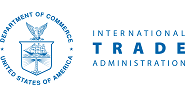Government/Policy
October 11, 2023
Commerce Gives Final Ruling in Japanese Tin Products Sunset Review
Written by Laura Miller
The US Department of Commerce’s International Trade Administration has issued its final ruling in an expedited sunset review of antidumping duties on imports of tin mill products from Japan.

Commerce found that the imports would likely continue to be dumped at a margin of 95.29% should the duties be revoked. The department issued its ruling in a Federal Register filing.
The AD duties on Japanese tin mill product imports have been in place since 2000. This is the fourth sunset review of the duties. Sunset reviews are conducted every five years as required by international trade law.
The International Trade Commission must now issue its final injury determination in its portion of the sunset review. An affirmative injury ruling – meaning revoking the duties would likely cause injury to the domestic industry – would result in the duties being maintained for another five years. A negative injury finding by the ITC would eliminate the duties completely.
While Commerce conducted an expedited review, the ITC decided to conduct a full sunset review of these duties in September. A full review will be completed within 360 days of initiation, while an expedited review is completed within 150 days.
The ITC told SMU that a schedule for the review is still being developed.
Cleveland-Cliffs and U.S. Steel are the domestic parties participating in this investigation.
Current Tin Mill Products Trade Case
Separately, a new trade case investigating the alleged dumping and subsidizing of tin mill products from a handful of countries is underway.
The countries being investigated are Canada, China, Germany, the Netherlands, Taiwan, Turkey, and the UK.
Cleveland-Cliffs and the United Steelworkers (USW) union filed the trade case in January.
More information about the case can be found here.







